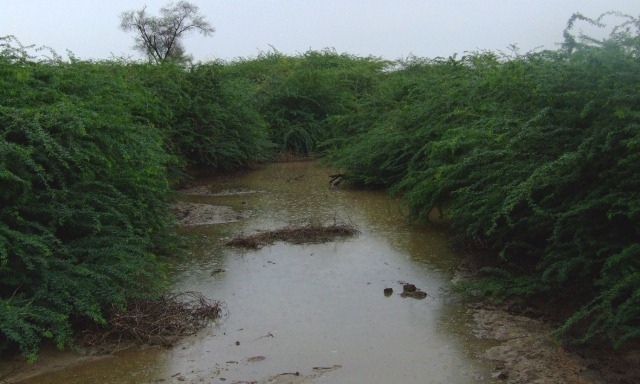Here is a media release from the Invasive Species Council and below is the abstract of the paper it refers to.

Aid and development agencies are courting disaster in Africa by promoting Australian wattles, warns Invasive Species Council biologist Tim Low, whose paper reviewing the problem was published this week in Biological Invasions.
“Aid agencies face pressure to provide quick solutions to long-term problems, so they recommend plants that thrive on degraded lands – in other words, plants with the attributes of weeds,” Mr Low said today.
“Mesquite, a prickly firewood tree heavily promoted by the Food and Agriculture Organization of the United Nations, is now causing great suffering in Africa, where it is invading farmland and national parks.
“Sudan has passed a law to eradicate it, and Kenya and Ethiopia have declared it a noxious weed,” he said.
“The World Conservation Union has placed it on a list of ‘100 of the World’s Worst Invasive Alien Species’, but despite overwhelming evidence that it is displacing farmers from their land, harming livestock, and reducing water supplies, mesquite is still promoted by international donors, NGOs, and development agencies.”

Arne Witt of the research and development organisation CABI-Africa says mesquite has been a tragedy for East Africa.
“I have spoken to many villagers who want it eradicated from their land,” he said.
“Mesquite and other invasive species are not only eroding cultures and traditions but fuelling conflict as they degrade the natural resource base.
“Mesquite and wattles are converting productive ecosystems over large areas of Africa into what are essentially ‘green deserts’.”
Mr Low warned Jatropha is another plant promoted by aid agencies as a biofuel that in most situations is doing more harm than good.
“Farmers encouraged to grow it, often in place of food crops, have suffered as promised markets fail to eventuate,” he said.
“This is another weedy plant that is difficult to remove when it becomes entrenched.”
Australian wattles (Acacia species) pose similar problems. Mr Low attended a workshop about the wattle problem in South Africa, where the weedy trees are extracting so much water from the soil they threaten the nation’s water supplies.
Yet they are promoted by many aid and development agencies as desirable fuel wood trees, with little recognition of the problems they cause.
“The aid and development community should abandon faith in ‘miracle’ plants that can quickly lift people out of poverty,” Tim Low said.
“Any short-term benefits they provide are soon overshadowed by the problems they cause.
“New plants should not be treated as a form of technology transfer when they often end up being weeds donated as aid.
“The verdict of history should not be that the aid and development community kept degrading vast tracts of land by ignoring warnings about the unproven crops they were promoting,” Mr Low said.
Reference








